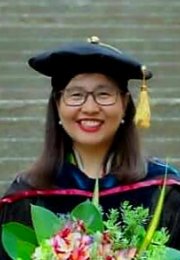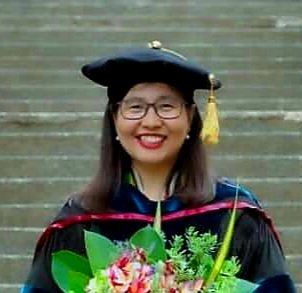- Resource Types
- Resource Languages
- Institutional Repository
About Site Language
WHDL is viewable in multiple languages. Use the pull-down menu to select a language to view the site.
I changed my language, but I’m still seeing resources in the other languages?
If a resource or text has not been translated into your selected language, it will appear in the initially added language. We are always looking for help translating these resources. If you can help, contact us!
WHDL - 00012934


click to copy
Lian, N (2020). Toward developing a biblically sound, spiritually formative, contextually appropriate curriculum for theological schools in Myanmar. .
Lian, NingToward developing a biblically sound, spiritually formative, contextually appropriate curriculum for theological schools in Myanmar. . , 2020
Lian, NingToward developing a biblically sound, spiritually formative, contextually appropriate curriculum for theological schools in Myanmar. . , 2020
Lian, NingToward developing a biblically sound, spiritually formative, contextually appropriate curriculum for theological schools in Myanmar. . , 2020
This study was conducted to examine the effectiveness of the spiritual formation practices in two selected theological schools (TSTS) in Yangon, Myanmar. It seeks to understand the spirituality of the students and to propose a curriculum that is a Biblically sound, contextually appropriate and spiritually formative for the theological school students in Myanmar. The ultimate goal of theological school students is to develop a Christ-like character by loving God and loving others. The descriptive study used a mixed-methods research approach involving survey questionnaires, semi-structured interviews, and document analysis. Based on the transformational learning theory of Jack Mezirow and the experiential learning theory of David A. Kolb, the study examined the spirituality of the students in TSTS. The Christian Spiritual Participation Profile (CSPP), developed by Jane O. Thayer, was utilized to examine the spiritual growth of the students. The profile includes fifty survey questions under ten spiritual discipline categories. The interview questions were developed by the researcher based on the research questions. The statistical analysis yielded the following conclusions in relation to the null hypotheses. The first null hypothesis (“There are no significant differences between men and women for spiritual practices”) is accepted. Therefore, there were no significant differences when the participants were grouped according to gender. The second null hypothesis (“There are no significant differences in spiritual practices by the number of years of faith”) is rejected. There are three areas of spiritual practices that showed significant differences. Older Christians are more practiced in terms of prayer, repentance, and worship than newer Christians. The third null hypothesis (“There are no significant differences in practice across the ten areas of spiritual practices”) is rejected because prayer, repentance, worship was used more among the ten spiritual practices. Stewardship, evangelism, and meditation were used less among the ten spiritual practices. The fourth null hypothesis (“There is no significant difference between participants from the two different theological schools”) is rejected. There were significant differences in four areas of spiritual practice between the two schools. Theological School A (TSA) used prayer, meditation, Bible reading and study less frequently than Theological School B (TSB). TSA showed more frequent use of service than the TSB. The qualitative data shared the most used spiritual formation practices in the two selected schools and their effectiveness. The interview data demonstrated that the spiritual formation course contributed to the spiritual life and vitality of the students by providing understanding and meaning of spiritual practices. Moreover, the spiritual emphasis week helped them to become stronger in their spiritual lives through the solid and powerful messages preached by the speakers. The interview responses pointed out the most helpful practices for spiritual formation of the students in TSTS as Bible reading and study, prayer, fellowship, worship, discipleship, fasting, examen of conscience, and service. Further study needs to be done in three areas: developing a Christian Spiritual Participation Profile in the context of Myanmar Christian churches; a review and comparison of the spiritual formation curriculum of theological schools of different faith traditions in Yangon; and a study on how to help students with different learning styles grow through their spiritual formation classes of theological schools in Yangon.
11 Resources
This collection contains the dissertations completed in partial fulfillment of the Degree PhD in Holistic Child Development, and PhD in Transformational Learning at Asia-Pacific Nazarene Theological Seminary in partnership with Asia Graduate School of Theology.
5 Resources
The collection is concentrated on resources on learning, teaching, and leading approaches that result in transformational learning in diverse person, institutions and cultures.
2021
2013
2018
2017
1995
2016
2024
2009
2017
2002
2020
2017
2020
2022
2020
2007